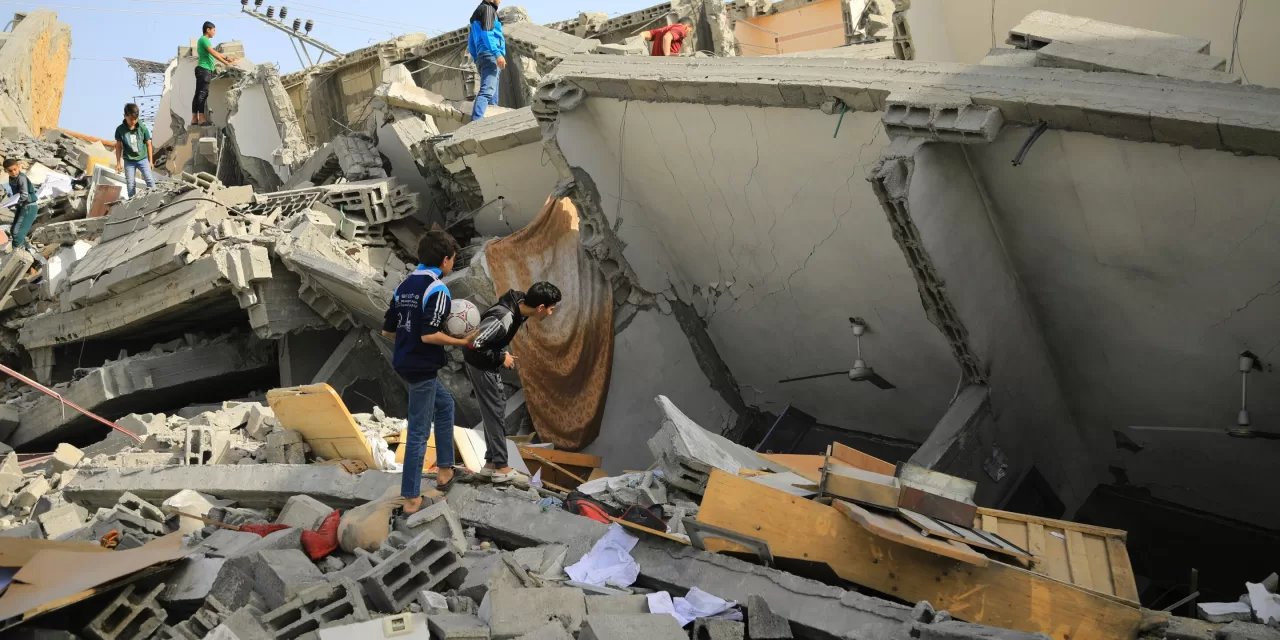The war in Gaza has left scars that will endure long after the recent ceasefire agreement between Israel and Hamas. Among its most concerning legacies is the rise in antimicrobial resistance—a phenomenon accelerated by the turmoil of war.
Antimicrobial resistance occurs when microbes adapt to survive medicines designed to eliminate them. These adaptations transform ordinary bacteria into superbugs, rendering effective treatments useless and once-manageable infections potentially fatal. Gaza, like other conflict zones, exemplifies how war creates the perfect environment for this global health crisis to thrive.
War’s Ripple Effects on Health Care
Armed conflicts dismantle health-care systems, often targeting regions with limited resources. Hospitals and diagnostic labs are destroyed, medical supplies dwindle, and health-care workers are displaced or killed. In these environments, it becomes nearly impossible to prevent and control infections, let alone manage antimicrobial resistance.
Vaccination programs—essential for preventing disease outbreaks—are disrupted. A lack of bacterial vaccinations leads to more infections, which increases antibiotic use and the likelihood of resistant microbes evolving. Similarly, gaps in viral vaccinations raise the risk of secondary bacterial infections, compounding the problem.
Misuse of Antibiotics on the Battlefield
The widespread injuries, poor hygiene, and infections common in war zones necessitate heavy antibiotic use. However, without proper diagnostic tools, broad-spectrum antibiotics—designed for specific, severe cases—are overused. Inadequate oversight allows antibiotics to be misused, such as using the wrong type or administering them for incorrect durations. These practices further fuel resistance.
Trauma wounds present an additional challenge. As Dr. Sergiy Kosulnykov from Ukraine’s Mechnikov Hospital observed, “Every blast is an open wound, and every open wound is an infection.” Unfortunately, these infections often involve multi-drug-resistant bacteria, acquired in field hospitals or unsanitary environments, exacerbating the problem.
Refugee Camps and the Global Spread
Overcrowded refugee camps with inadequate sanitation serve as breeding grounds for resistant microbes. Poor water and hygiene infrastructure worsens the situation, promoting the spread of infections. Refugees and displaced populations inadvertently carry resistant microbes across borders, accelerating the global spread.
For instance, the highly drug-resistant Acinetobacter baumannii bacteria have been identified in soldiers returning from war zones like Afghanistan and Iraq. Similar cases have been documented in the UK and other regions, underscoring the far-reaching implications of antimicrobial resistance originating in conflict areas.
A Global Call to Action
To combat antimicrobial resistance, especially in conflict zones, robust international collaboration is crucial. Rebuilding health-care systems, regulating antibiotic use, ensuring vaccine access, and improving sanitation must be prioritized. Without these measures, antimicrobial resistance risks becoming another devastating legacy of war, endangering global health and security.
Disclaimer
This article is based on expert insights and evidence provided by The Conversation and aims to shed light on the overlooked health impacts of war.












